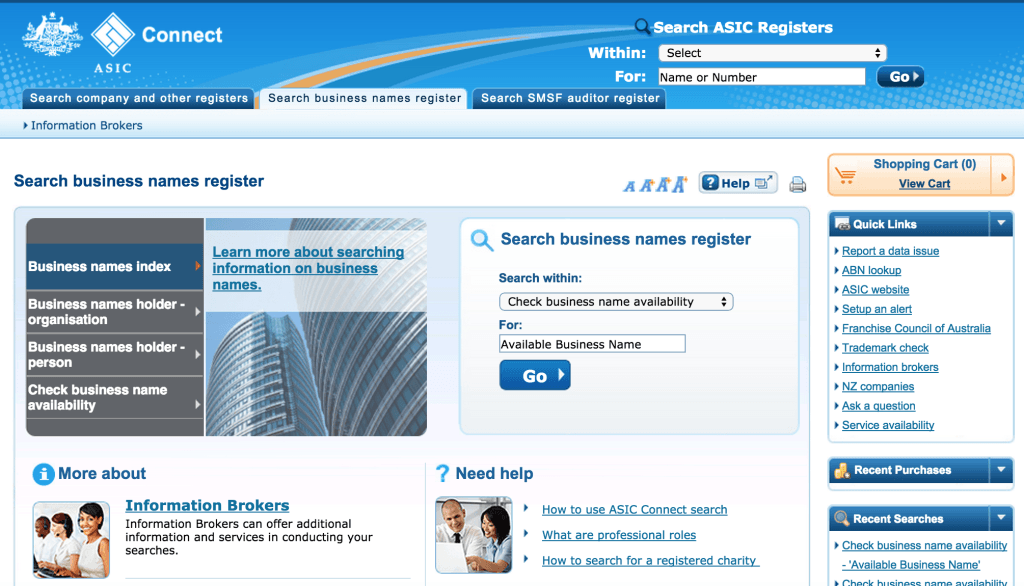
How many times have you been inspired with a great business idea? In the shower; at the gym or while talking with friends.
Of those moments of inspiration how many times have you acted on your idea; or failed to act and later discovered that someone else has made millions from a similar concept?
In the past, starting your own business has been fraught with personal and financial risk. But with technological advancements enabling problems to be solved faster as well as huge changes to the traditional job market, there has never been a safer time to pursue the start-up dream.
To ease the transition from a traditional 9am – 5pm role to the start-up world, we have put together a Young Entrepreneur’s Start-Kit: what you need to get your online business up and running, your main legal obligations, and how you can create an ethical and sustainable enterprise.
Today Is The Day: Name The Game
Naming your business should be the most intuitive part of the process but it can also be the most difficult. Set aside a few weeks to develop ideas. Make a list of 10 names, ranked from your most favourite to least favourite and ask for feedback from trusted friends and family.
Invest adequate time and thought into this stage of the process: your business name has the potential to make or break your business.
Some things to bear in mind:
- Your name should reflect the key focus of your business clearly and effectively
- Avoid using complicated names, numbers or made up words
- Choose a name that resonates with the customers you wish to attract – people will be more likely to buy your product or service.
Once you have your shortlist:
1. Search the Australian Business Name Register on ASIC Connect to make sure no one else has registered your business name.

2. If your name is available, conduct a trade mark check through IP Australia.
This is important to check that you are not infringing someone else’s trade mark by registering your business name. If you do not complete this step, and infringe an existing trade mark, you can expose yourself to expensive litigation, legal bills, disputes and it may cause your business to shut down before it even starts.
3. If your name is available, and does not interfere with a registered trade mark, go ahead and register your business name. To do this, you need to set up an ASIC Connect account.
4. The application process requires that you provide an ABN (Australian Business Number), or be in the process of applying for one, personal and birth details, email address, residential address, and address for the service of documents.

The cost of registering your business name is $34 for one year or $70 for 3 years.
Get An Internet Address: Domain Name Registration
Once you have registered your business name, you will need to register a domain name so that you can set up a business website.
Check to see whether the domain you wish to use has been registered using WhoIs.net.
A domain is the internet address where your potential customers can find your product or service. Just like your house has a physical address where visitors can locate you, customers visiting your website need a web address to find your business. It is critical to keep your domain name simple, memorable and as closely aligned with your business name as possible – if your customers cannot find you, they cannot buy your product or service.
If you are planning on selling your product or service to an Australian market, it is worthwhile registering a “.com.au” domain name through the Australian “.au Domain Administration Ltd”. Domains that use “.com.au” may only be registered if you have an ABN. This adds a layer of credibility to your enterprise by immediately showing visitors that you are registered to carry out business in Australia.
If you plan to expand your business internationally, however, it may be more appropriate to register a “.com” domain.
Domain names usually require yearly renewal and cost around $10-20 per year.
Purchase Prime Real Estate: Web Hosting
Before you can start creating your business website with your new domain, you need to purchase web hosting.
Web hosting is like a plot of real estate where you can start building your site. Your host will provide technical support for your site and often include free domain name registration when you sign up for a plan.
Some popular international hosting companies include GoDaddy, BlueHost and Hostgator. Although you may wish to choose a smaller option such as A Small Orange.

Prices and packages vary considerably between companies. Shop around and watch out for special offers. It is possible to obtain 2 years of web hosting for less than $200.
Build A Solid Foundation: Content Management System
Once you have your domain name and web host, you can begin building your business website.
To do this, you need a content management system (CMS) such as WordPress. StudioPress themes built on Genesis Framework are a good place to start.
Choosing the right content management system and website design is like deciding how your house will look on a piece of land.
Traditionally, small businesses have outsourced website design, however, this can set you back thousands of dollars. Using a solid content management system, such as WordPress, it is now entirely possible to construct your own site from scratch with no prior coding knowledge.
There are a large number of free themes, but purchasing a customisable premium theme for approximately $100 sets your business page apart from countless others built on free themes.
Select a theme that is mobile-friendly. Recent changes to an algorithm Google uses to rank websites means that mobile-friendly sites are now favoured in search results.
When choosing the design of your business site remember:
- Your website is the public face of your business and the first place your potential customers find out more about your product or service
- A customer will decide whether to buy from you within 2-5 seconds of visiting your site, so it is critical that your website design is clean, user-friendly and has everything your customer needs in one place
- Choose a few key colours and stick with them
- Make sure you have a clear and highly visible ‘call to action’ where your visitors can buy
Invest In A Fresh Coat Of Paint: Logo Design
If you wish to make an immediate impact with your business, it is worthwhile commissioning a professional to design your logo. Websites such as 99 Designs allow you to host design competitions where designers from around the world compete for a pre-determined fee (usually around $350-400).
There are also free online tools such as Logo Garden where you can create your own logo, or Graphic Springs which charges a small fee to download your final design.
Understand Which Laws Apply To Your Business
Part of being a successful entrepreneur is being aware of, and compliant with, laws that are applicable to your business and employees. The main legal areas you may encounter include:
- Business registrations
The registrations you require depend on the type of business you run. More information on registrations can be found here.
- Licences
The licences or permits you require are available from the Australian Business Licence and Information Service (ABLIS) and depend on the product or service you provide.
- Privacy Principles
As a business owner, you have obligations under the Australian Privacy Principles (APPs). To find out what your obligations are, or whether your business is required to comply, visit the Office of the Australian Information Commissioner (OAIC) website.
- Anti-bullying legislation
If you employ staff you are required to provide a safe work environment. Where an employee is repeatedly treated unreasonably by an individual or group, for example, they may apply to the Fair Work Commission for an order to stop the bullying at work continuing.
- Independent contractors
Your legal obligations differ depending on whether you hire someone to complete work as an employee or an independent contractor. The independent contractor decision tool can help you determine the difference.
- Unfair dismissal
Small businesses comprise less than 15 individuals and must comply with the Small Business Unfair Dismissal Code.
Establish An Ethical Company Culture
Start-ups grow at a breakneck pace. For new entrepreneurs this can mean that important foundational elements, such as being consciously ethical, are overtaken by the need to keep a new business afloat.
Growing your business from an ethical foundation, however, is crucial to its long term success. Studies indicate that ethical businesses enjoy greater success by gaining more investment, happier employees and attracting more customers.
The UN Global Compact, together with LexisNexis, is recognising the importance of ethical practices and the rule of law in the global business community. In a new initiative, the Business For The Rule Of Law Framework, businesses are encouraged to take a proactive approach to business ethics and the rule of law in everyday operations.
As a responsible business owner, this means that you can support the Business For The Rule Of Law Framework by modelling responsible conduct, engaging in efforts to help strengthen legal frameworks and promoting more accountable institutions in Australia.
Conclusion
Starting an online business is quicker, easier and more affordable than you might think.
Some of the greatest companies in history have been founded on opportunities that no one else can see. If you have been toying with the idea of starting your own business, what are you waiting for?
The only thing worse than starting something and failing is not starting something – Seth Godin
Make the decision to start and the hardest part will be behind you.
Further Information
- For more information on the Business Of Rule Of Law Framework visit: United Nations Global Compact.
- For information and advice on legal issues impacting small business (such as contracts, employment, fair trading, leases, insurance, credit and debt recovery, finance and tax) view the online Small Business Legal Help Guide.
- To work through everyday ethical dilemmas anonymously and free, contact: Ethi-Call.
 Agree? Get informed about legal change that impacts you with our newsletter. You'll automatically receive fresh content each time we publish.
Agree? Get informed about legal change that impacts you with our newsletter. You'll automatically receive fresh content each time we publish.